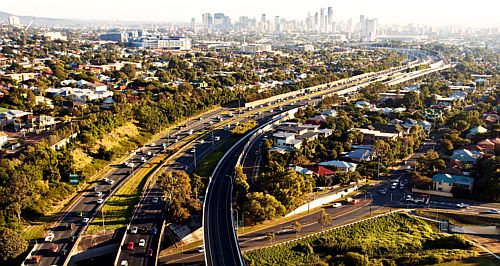Make / Model Search
News - racqRACQ calls for split approach to NVESQueensland motoring body wants ute and 4WD targets ‘relaxed in initial years’ of NVES8 Mar 2024 By MATT BROGAN THE Royal Automobile Club of Queensland (RACQ) has thrown its weight behind a growing number of parties voicing their concern over the Federal government’s proposed New Vehicle Efficiency Standard (NVES).
While the RACQ agrees that a reform to increase competition and attract a greater number of cleaner, safer cars to its state will ultimately benefit in making motoring more affordable, it says changes to the model were needed to ensure regional Queenslanders, and those who required heavier vehicles like utes, were not penalised in the push to decarbonise personal transport.
“The modelling is important to secure public confidence in the benefits that will flow,” explained RACQ head of public policy Dr Michael Kane, arguing the NVES is not just about environmental benefits, but also the safety and financial benefits it can offer motorists.
“A well-designed standard will not only incentivise manufacturers to send better and safer cars, utes, and 4WDs to Australia, but also ensure they are competitively priced.
“Apart from Russia, Australia is the only other advanced nation without vehicle efficiency standards, and this should have been fixed a long time ago.
“The longer we don’t have one, the further behind Australia will trail the rest of the world on access to the best cars, utes and 4WDs to drive.”
While both Dr Kane and the RACQ support the introduction of a NVES, he said it would like to see some adjustments to the current proposal to ensure regional Queenslanders are not left behind.
“We would like to see future fuel efficiency targets for utes and 4WDs relaxed in the initial years to allow vehicle technology to be introduced and to make sure new and more efficient models maintain or even increase in range,” said Dr Kane.
“Vehicle range is a big factor for regional Queenslanders and off-road enthusiasts and the last thing we want to see is any new standard compromising that.”
The RACQ is also calling for the Federal government to support research innovation in utility and 4WD technology and the biofuels industry development.
“Despite improving battery technology there is likely to always be a need for fuel for heavier vehicles in regional and remote parts of Australia. RACQ believes that ethanol and biofuels can play a part in decarbonisation and boosting regional economies,” said Dr Kane.
The RACQ says it has “crunched the numbers” to show how utes and 4WDs have become more fuel efficient and cheaper to run over the past 60 years thanks to technology advancements.
Their research suggests Australians could save even more if an appropriate NVES is introduced, especially following recent advancements in electrification, range extenders and hybrids.
“If we stopped innovating in the 1970s and still had the same engines, drivetrains and efficiencies in utes today as we did back then, it would cost us $28 to travel 100km, instead of $16,” added Dr Kane.
“In the future we should be aiming for these vehicles to cost less than $10 per 100km, and that is why new vehicle standards are important.
“RACQ has heard concerns surrounding the NVES about affordability, but we can find little international evidence pointing to upward pressure on vehicle purchase costs.”
In the interests of transparency, the RACQ has urged the Government to release NVES modelling to inform legislation which is set to come into effect in January 2025.
 Read more4th of March 2024  Toyota wants delay, big changes to NVESAdjustments, delay to New Vehicle Efficiency Standard in Toyota Australia crosshairs27th of February 2024  Proposed NVES gets mixed responsesAussie auto industry agrees on need for NVES but opinions vary on what it looks like26th of February 2024  UK tax changes signal potential NVES outcomesDual-cab ute tax changes in UK signal potential outcomes for Australia under NVES19th of February 2024  Hyundai can ‘see merit’ in proposed NVESBigger role for growing BEV, hybrid line-up flagged as Hyundai welcomes NVES proposal19th of February 2024  NVES to unsettle ute market, says MitsubishiMitsubishi says implementation of NVES spells uncertainty for ute-centric importers |
Click to shareracq articlesMotor industry news |











Facebook Twitter Instagram